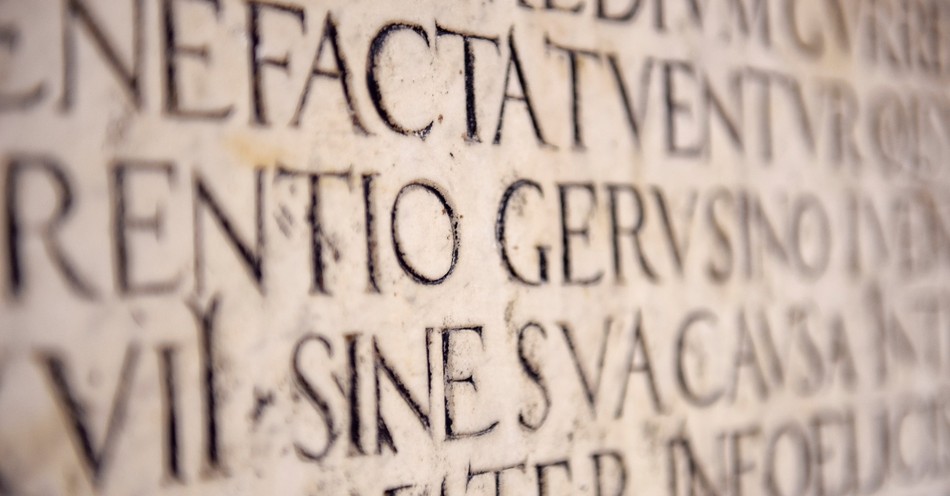As discussed in previous articles on translations of the Bible, Christians have received a calling, since the beginning of the Church, to preach the gospel to all nations (Matthew 28:16-20). But when did the disciples of Christ begin translating the Bible into other languages?
After all, during the time of Jesus, many of the apostles would have spoken a variety of languages. They would’ve spoken Greek, thanks to the Hellenization of the Jewish world, hence the reason why the earliest New Testament documents would’ve been written in Ancient Greek. The Jews would have also spoken Hebrew, the language of the Israelite people, and Aramaic, the lingua franca of the Middle East right before the New Testament time, thanks to the Persians.
If we peruse the history of the Jewish people, we would notice that during the time of the Early Church, most of the people whom the disciples were trying to reach with the gospel spoke Latin, because the Roman Empire had stretched its reach throughout the Mediterranean world and beyond. Although they had the Bible in Greek, to reach these contemporaries, they needed to change the language of the text.
Hence, the birth of the Latin Vulgate Bible. Before this translation, there was supposedly a translation of the Bible in Latin, composed around AD 200, so the Christians who spoke Latin could have a translation of the Bible geared toward them. However, these Latin translations have been lost to history.
Around AD 400, Pope Damascus I asked a saint by the name of Jerome to compile a Latin translation of the Bible, completed in the fifth century AD.
We’ll dive into Jerome’s process of compiling the Latin Vulgate Bible, and the importance of it in church history and today.
Who Was Saint Jerome?
Although his claim to fame is the translation of the Bible into Latin, Jerome was also known for having a problem with anger.
He had a passion for apologetics, was an academic, wrote commentaries, and even earned positive remarks from St. Augustine. He lived from AD 347-419 and pursued a monastic lifestyle.
How Did Jerome Translate the Bible into Latin?
When we ask this question, we have to understand what the sources from which he translated the Bible were. Were they from other translations or was it written in the original language?
It depends on which section of the Bible we’re talking about. For instance, Jerome translated the Old Testament into Latin from a translation known as the Tanakh instead of the Septuagint. Although, depending on the scholars, others say he used only the Septuagint and not the Tanakh.
He likely would have used both in his translation, as it’s easier to translate Latin from Greek, rather than Latin from Hebrew and Aramaic. However, as mentioned in this article, he found the Septuagint unsatisfactory and translated from the original Tanakh.
As discussed in the article linked in the previous sentence, 70-72 Jewish scholars translated the Old Testament from the original language into Greek, to accommodate the Hellenization of the Jewish world at the time.
What was most surprising about the Septuagint was that the Jewish scholars worked independently of each other, and yet, all produced identical translations. Therefore, God had a divine hand in the translation process.
Nevertheless, as stated, Jerome translated the Old Testament from manuscripts containing the original language, known as the Tanakh. As for the New Testament, Jerome would’ve translated from older Latin manuscript translations of the time, as discussed above, which were compiled in roughly AD 200. However, Jerome would have also used Greek versions of these manuscripts in aiding the translation as well, even though he preferred the original Tanakh.
What Was the Importance of the Vulgate in Church History?
Vulgate means “common version.” In other words, the Pope who commissioned this work wanted a more accessible version of the Bible available to Christians who spoke Latin at the time.
Although it took a while for the church to get on board with the translation, the Vulgate was decreed the exclusive Latin authority (or, in other words, the best and most accurate Latin translation of the original text and intention of the text) of the Bible in 1546.
Why Does This Matter Today?
This book also matters now because we see the importance of the accuracy of translating the Bible. Although we cannot account for every nuance in the original language (for instance, Psalm 119 follows a poetic form of the Hebrew alphabet that we wouldn’t notice as English readers), we want to provide translations that most accurately depict the doctrine and original language of the text.
From 1546 on, the Latin Vulgate became the official Bible of the Catholic church. Jerome meticulously compiled the Latin Vulgate doing so. He turned to both the Septuagint and the original Tanakh to provide the best translation possible. And the Latin Vulgate has further shaped future translations of the Bible.
©iStock/Getty Images Plus/Stefano_Pellicciari
Hope Bolinger is an acquisitions editor at End Game Press, book editor for hire, and the author of almost 30 books. More than 1500 of her works have been featured in various publications. Check out her books at hopebolinger.com for clean books in most genres, great for adults and kids. Check out her editing profile at Reedsy.com to find out about hiring her for your next book project.


.jpg)
